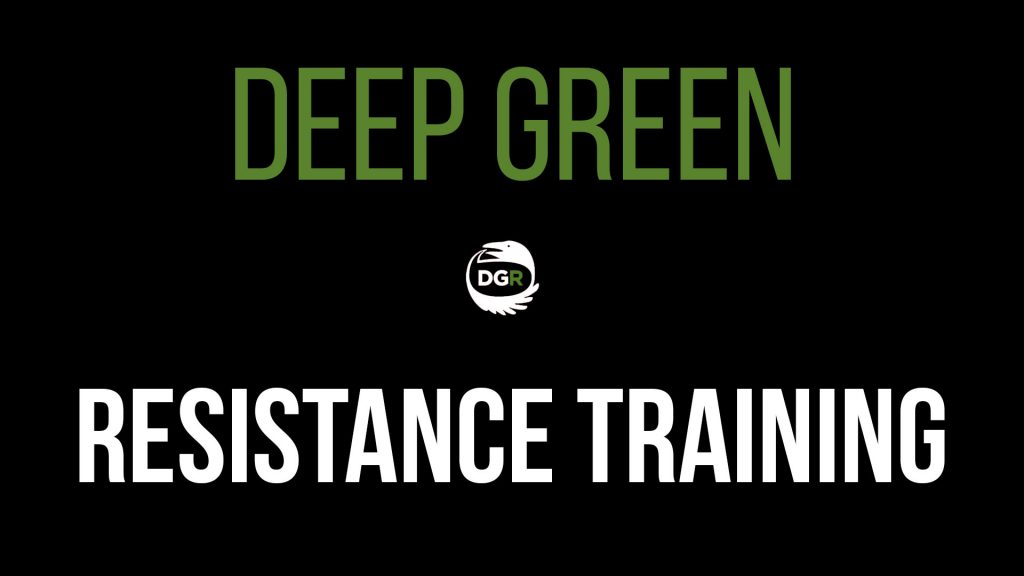
by Deep Green Resistance News Service | Jul 19, 2018 | Strategy & Analysis
by Max Wilbert / Deep Green Resistance
THE SITUATION
Our world is in crisis. Species extinction, topsoil loss, deforestation, rising seas, ocean acidification, global warming. It’s no exaggeration to say that the dominant culture is killing the planet. At the same time, societies around the world are staggeringly unjust. Neocolonialism builds up empires on the backs of indigenous peoples, sweatshop workers, unpaid and underpaid women, and the bodies of our nonhuman kin.
FALSE SOLUTIONS
We do not trust electoral politics, NGOs/non-profits, or foundations. Change must come from the grassroots, but the masses can be led astray. False solutions abound in the form of vague reforms, half-measures, and technologies that only strengthen empire.
REVOLUTION
We aim for nothing less than total liberation from extractive economics (including capitalism and socialism), white supremacy, patriarchy, colonialism, industrialism, and the culture of empire that we call civilization. This is a war for survival, and we’re losing. We aim to turn the tide. We mean to win. Some will end up in prison. Some will die. This is the price of justice. Revolution will not be tranquil or easy.
STRATEGY
Our main strategy is to build a revolutionary culture that supports outright destruction of the dominant culture (empire/industrial civilization). Specifically, we promote a strategy informed by the history of guerilla warfare that entails coordinated underground cells using sabotage to destroy global energy, transportation, communications, trade, and finance systems. The goal is to stop the global economy, not to harm individuals or the people. We recognize the value in other strategies such as mass movements, building alternatives, and changing laws, but these methods have little chance of stopping or significantly altering the course of global empire.
THE FUTURE
There are countless thousands of examples of land-based, sustainable, just human cultures, the majority of them indigenous. When the global economy collapses, we will need to live this way once again. The people will need to help the land heal by dismantling the vestiges of this system and stewarding toxic waste such as nuclear plants into dormancy. Low-energy societies will thrive in the ruins of civilization. They will face their own challenges, as all people do, but they will be strong if we protect their ability to exist by removing threats to the planet.
IDENTITY POLITICS
The experiences of those who have suffered systematic oppression can never be fully understood by those who have not. However, being a member of an oppressed group does not automatically lead to wisdom. We value and lift up those leaders who have true vision and skill, not figureheads or puppets. Anti-oppression politics form the bedrock of our human morality, but our goal is not political correctness; it is revolution.
RACISM AND PATRIARCHY
Racism and patriarchy both exist to further power and domination by turning large groups of people into exploitable others. These toxic ideologies deeply influence our culture and prop up empire by providing a steady stream of cheap and free labor, children to serve as the next generation of consumers and soldiers, and stereotypes to manipulate the population with. As the oppression of women and people of color is so wrapped up in the global industrial economy (via mass media, pornography, the prison-industrial system, housing, etc.), we see dismantling empire as critical to the dismantling of the concrete systems of power enforcing racism and patriarchy.
IMMIGRATION
The global economy creates millions of refugees each year via wars, trade, and propaganda. Most immigration happens because people’s land or livelihoods have been destroyed. Ideally, people should be allowed to live in their homes on land that is healthy and can support their community. Therefore, the best way to address the immigration “problem” is to bring down the global empire. We must stop the problem at the source.
HOW WE WORK
We must be tenacious, smart, strategic, careful, bold, and self-reflective. We must be unapologetic and non-compromising. We’ve got to sacrifice. Those who are ready have to get together and do the tedious work of organizing and building organizations and communities, engaging in political struggles, and carrying out realistic strategies for success. We don’t hope to be effective, we plan to make it happen.
LOYALTY
Throughout history, repressive and counterrevolutionary forces have worked to drive wedges into communities of resistance. Never forget COINTELPRO. Our protection lies in a fierce, forgiving loyalty to those who resist.

by Deep Green Resistance News Service | Jun 15, 2018 | Movement Building & Support
by Deep Green Resistance
Next weekend, Deep Green Resistance is hosting an advanced training in direct action, revolutionary strategy, tactics, and organizing taking place next to Yellowstone National Park. If you wish to attend, sign up now. We also have one free scholarship available that covers the cost of attending. Email us at training [at] deepgreenresistance [dot] org if you wish to apply for this scholarship.
Click here to register
Our trainers include:
Sakej Ward
 Sakej (James Ward) belongs to the Wolf Clan. He is Mi’kmaw (Mi’kmaq Nation) from the community of Esgenoopetitj (Burnt Church First Nation, New Brunswick). He is the father of nine children, four grandchildren. He resides in Shxw’owhamel First Nation, B.C. with his wife Melody Andrews and their children. Sakej is a veteran of both the Canadian and American militaries. He finished his military career at the rank of Sergeant in an elite Airborne unit. Sakej holds a Bachelor’s Degree in Political Science with a specialization in International Relations and a Master’s of Arts Degree in Indigenous Governance. Sakej has a long history of advocating and protecting First Nations inherent responsibilities and freedoms, having spent the last 24 years fighting the government and industry. Having taught, organized, advised and led various warrior societies from all over Turtle Island down into Guatemala and Borike (Puerto Rico) Sakej has made warrior-hood his way of life. He has been on over a dozen warrior operations and countless protest actions. He dedicates all his time to developing warrior teachings and instructing warrior societies from all over.
Sakej (James Ward) belongs to the Wolf Clan. He is Mi’kmaw (Mi’kmaq Nation) from the community of Esgenoopetitj (Burnt Church First Nation, New Brunswick). He is the father of nine children, four grandchildren. He resides in Shxw’owhamel First Nation, B.C. with his wife Melody Andrews and their children. Sakej is a veteran of both the Canadian and American militaries. He finished his military career at the rank of Sergeant in an elite Airborne unit. Sakej holds a Bachelor’s Degree in Political Science with a specialization in International Relations and a Master’s of Arts Degree in Indigenous Governance. Sakej has a long history of advocating and protecting First Nations inherent responsibilities and freedoms, having spent the last 24 years fighting the government and industry. Having taught, organized, advised and led various warrior societies from all over Turtle Island down into Guatemala and Borike (Puerto Rico) Sakej has made warrior-hood his way of life. He has been on over a dozen warrior operations and countless protest actions. He dedicates all his time to developing warrior teachings and instructing warrior societies from all over.
Kara Dansky
 Kara Dansky is an independent consultant and the founder of One Thousand Arms. One Thousand Arms consults with organizations in conducting research and policy analysis on criminal and racial justice topics, including policing, bail and pretrial, sentencing and corrections, mass incarceration, drug policy, immigration policy, and others. She is also a radical feminist and serves on the Board of the Women’s Liberation Front. Kara created Gender Critical Lawyering in order to bring radical feminist arguments before the Court. She has previously served as Special Advisor at the New York City Mayor’s Office of Criminal Justice, Senior Counsel at the American Civil Liberties Union’s Center for Justice, Senior Advisor at the DHS Office for Civil Rights and Civil Liberties, Executive Director of the Stanford Criminal Justice Center, and Staff Attorney at Society of Counsel Representing Accused Persons. She earned her J.D. from the University of Pennsylvania Law School and her B.A. from the Johns Hopkins University, both cum laude.
Kara Dansky is an independent consultant and the founder of One Thousand Arms. One Thousand Arms consults with organizations in conducting research and policy analysis on criminal and racial justice topics, including policing, bail and pretrial, sentencing and corrections, mass incarceration, drug policy, immigration policy, and others. She is also a radical feminist and serves on the Board of the Women’s Liberation Front. Kara created Gender Critical Lawyering in order to bring radical feminist arguments before the Court. She has previously served as Special Advisor at the New York City Mayor’s Office of Criminal Justice, Senior Counsel at the American Civil Liberties Union’s Center for Justice, Senior Advisor at the DHS Office for Civil Rights and Civil Liberties, Executive Director of the Stanford Criminal Justice Center, and Staff Attorney at Society of Counsel Representing Accused Persons. She earned her J.D. from the University of Pennsylvania Law School and her B.A. from the Johns Hopkins University, both cum laude.
Rachel Lima
Rachel Lima (Charlie Rae) is a freelance writer for The Fifth Column and a dedicated independent journalist who has taken on the topic of transgenderism. Growing up with gender dysphoria, Rae speaks from the perspective of a tomboy who evaded the grips of this fad by a decade. Rae is a Tau Sigma honors student from NCSU intermittently studying communication, and a grassroots activist who has worked on everything from on-the-ground coverage, to local elections, to door knocking, to fundraising, to social media campaigns, to being a student senator representing her college body, to interviewing for local independent media, to guest lecturing at University, to photographing for the resistance, etc. Rae has developed an encompassing resistance seminar so that DGR and its members will have the tools and the mindset to incorporate resisting transgenderism into their approach.
Will Falk
 Will Falk is a lawyer and writer living in Heber City, UT, on occupied Ute territory. A graduate of the University of Wisconsin-Madison Law School, and a former public defender, his legal practice is committed to protecting human and non-human communities. The natural world speaks and Will’s work is how he listens. His writing has been published by the Dark Mountain Project, Earth Island Journal, CounterPunch, Whole Terrain, CATALYST Magazine, and the San Diego Free Press, among others.
Will Falk is a lawyer and writer living in Heber City, UT, on occupied Ute territory. A graduate of the University of Wisconsin-Madison Law School, and a former public defender, his legal practice is committed to protecting human and non-human communities. The natural world speaks and Will’s work is how he listens. His writing has been published by the Dark Mountain Project, Earth Island Journal, CounterPunch, Whole Terrain, CATALYST Magazine, and the San Diego Free Press, among others.
Max Wilbert
 Max Wilbert is a third-generation organizer who grew up in Seattle’s post-WTO anti-globalization and undoing racism movement. He holds a Bachelor’s Degree in Environmental Communication and Advocacy from Huxley College. He lives in rural Oregon. Max has a 15-year history as an organizer and revolutionary. He is a co-founder of Deep Green Resistance and longtime board member of a small, grassroots environmental non-profit with no employees and no corporate funding. His first book, a collection of pro-feminist and environmental essays, was recently released. He is also the co-author of the forthcoming book “Bright Green Lies,” which looks at the problems with mainstream so-called “solutions” such as solar panels, electric cars, recycling, and green cities. The book makes the case that these approaches fail to protect the planet and aim at protecting empire from the effects of peak oil and ecological collapse. He has participated in countless protests and more than ten direct actions, and been a part of multiple campaigns and land defense efforts. He has organized training for activists and revolutionaries in 10 states and in Canada.
Max Wilbert is a third-generation organizer who grew up in Seattle’s post-WTO anti-globalization and undoing racism movement. He holds a Bachelor’s Degree in Environmental Communication and Advocacy from Huxley College. He lives in rural Oregon. Max has a 15-year history as an organizer and revolutionary. He is a co-founder of Deep Green Resistance and longtime board member of a small, grassroots environmental non-profit with no employees and no corporate funding. His first book, a collection of pro-feminist and environmental essays, was recently released. He is also the co-author of the forthcoming book “Bright Green Lies,” which looks at the problems with mainstream so-called “solutions” such as solar panels, electric cars, recycling, and green cities. The book makes the case that these approaches fail to protect the planet and aim at protecting empire from the effects of peak oil and ecological collapse. He has participated in countless protests and more than ten direct actions, and been a part of multiple campaigns and land defense efforts. He has organized training for activists and revolutionaries in 10 states and in Canada.
Mike Bucci
 Mike Bucci is an environmental activist with Deep Green Resistance. He also helps community-based organizations develop affordable housing. He lives in a small cooperative of “homesteaders” in NY City (originally settled by the Leni Lenape tribe), and in the woods in an upstate NY watershed area surrounded by acres of old growth and farmland. Currently, he’s focused on promoting more effective activism against the industry’s build out of fossil fuel infrastructure, and fighting to end institutionalized racism, while building communities of resistance. In solidarity with radical feminists he supports the end of patriarchy and gender. In the past, he co-founded both NY Men Against Sexism, and Men Against Pornography.
Mike Bucci is an environmental activist with Deep Green Resistance. He also helps community-based organizations develop affordable housing. He lives in a small cooperative of “homesteaders” in NY City (originally settled by the Leni Lenape tribe), and in the woods in an upstate NY watershed area surrounded by acres of old growth and farmland. Currently, he’s focused on promoting more effective activism against the industry’s build out of fossil fuel infrastructure, and fighting to end institutionalized racism, while building communities of resistance. In solidarity with radical feminists he supports the end of patriarchy and gender. In the past, he co-founded both NY Men Against Sexism, and Men Against Pornography.
Click here to register

by Deep Green Resistance News Service | Mar 10, 2018 | Women & Radical Feminism
Featured image: The International Coalition Against Human Trafficking
by Max Wilbert / Deep Green Resistance
“Feminism is the struggle to end sexist oppression. Therefore, it is necessarily a struggle to eradicate the ideology of domination that permeates Western culture on various levels, as well as a commitment to reorganizing society so that the self-development of people can take precedence over imperialism, economic expansion, and material desires.” – bell hooks
Last weekend, I was tabling for Deep Green Resistance at an environmental conference. A young man, who looked to be in his early 20’s, came up to the table. I approached him and asked if I could answer any questions.
He pointed at the sticker on the table: “Patriarchy + Capitalism = Pornography.” With a sneer he asked, “Do you really believe that?”
I told him I did. “So are you a SWERF,” he asked, using a common acronym for sex-worker exclusionary radical feminist. “What about agency?”
What an insane thing for a leftist to ask! Would anyone say that I’m “denying the agency of U.S. soldiers” because I oppose US imperialism? Would anyone say that I’m “excluding McDonald’s workers” because I oppose capitalism and the fast food industry?
Of course not. These arguments are self-evidently bullshit. It’s possible (and I can’t believe I have to say this) to oppose larger systems while still having sympathy, and even acting in solidarity, with those who are trapped inside those systems. And just because some women “choose” and “enjoy” working in pornography and prostitution doesn’t mean that we can’t critique the industry—and even critique these women for choices that have harmful effects on others.
The fact that a member of an oppressed class chooses to participate in the oppressive system doesn’t mean their choice can’t be criticized. After all, as the wonderful anti-porn activist Gail Dines has said, “Systems of oppression are flexible enough to absorb some members of subordinated groups; indeed, they draw strength from the illusion of neutrality provided by these exceptions.”
So why does this young white man believe that when it comes to pornography, “agency” is more important than the real, material impacts of the porn industry?
What I explained to the young man is that mass media and culture shapes the way we think. This has been a fundamental understanding of the left for decades. We can call it manufacturing consent, propaganda, or cultural hegemony.
Advertising works. Propaganda works. That’s why they use it.
That’s why Arundhati Roy, writing about right-wing police forces battling indigenous land defenders in rural India, quotes the superintendent of police chief as saying, “See Ma’am, frankly speaking this problem [sic] can’t be solved by us police or military. The problem with these tribals is they don’t understand greed. Unless they become greedy there’s no hope for us. I have told my boss: remove the force and instead put a TV in every home. Everything will be automatically sorted out.”
Take the same approach and apply it to patriarchy, and you’ll have the last 50 years of this culture: pornography becoming more and more normalized, softcore porn moving into pop culture and social media, and ubiquitous access to demeaning, woman-hating content 24/7 from the device in your pocket.
The pornography industry in the United States is more profitable than Hollywood. It’s also more profitable than the NFL, NBA, and MLB—combined. Porn sites, at any given time, have about 30 million unique visitors watching.
As Sheila Jeffries writes, “Pornography, then, educates the male public. It would be very surprising if it did not.”
Do you really think that getting paid a small amount of money in order to have a strange, smelly man aggressively fuck you is “empowering?”
Here’s the reality: prostituted women are often “physically revolted and hurt by the sex.”
Women who have escaped prostitution have higher rates of PTSD than soldiers who have been in combat.
Read that sentence again.
There are an estimated 40 million people in prostitution worldwide, most of them (more than 80 percent) women and children. Women of color make up a highly disproportionate number of prostituted women. Of the 40 million, 2.5 million are trafficked. In other words, they are sex slaves. The average age of entry to the industry is 13 years old.
Thirteen fucking years old.
But in the face of this violence, the “agency” of a few relatively wealthy “sex workers” who claim to enjoy their jobs is more important.
If we call prostitution a “job” (rather than a form of abuse), it would be by far the most dangerous job in the US, with a murder rate of 204 per 100,000. Even if we don’t call every sex act within the context of prostitution a rape, about 80 percent of prostituted women have been raped, and they are raped an average of 8-10 times per year.
As indigenous feminist Cherry Smiley writes (brilliantly) in the Globe and Mail, “Prostitution, akin to the residential school system, is an institution that continues to have devastating impacts on the lives of aboriginal women and girls, who are disproportionately involved in street-level prostitution. Prostitution is an industry that relies on disparities in power to exist. We can see clearly that women, and especially aboriginal women and girls, are funneled into prostitution as a result of systemic inequalities such as their lack of access to housing, loss of land, culture, and languages, poverty, high rates of male violence, involvement with the foster care system, suicide, criminalization, addiction, and disability. To imagine that prostitution, a system that feeds these inequalities, should be allowed or encouraged, is dangerously misguided and supports the ongoing systemic harms against our women and girls.”
The whole notion of a SWERF is ridiculous. As Jindi Mehat writes, “Supporting an argument that excludes the majority of women in prostitution, while calling the very women who consider the whole picture ‘exclusionary,’ shows how intellectually vapid and hypocritical so-called liberal feminism is. Just like calling support of prostitution, which exposes the most marginalized among us to increased levels of violence and abuse, a feminist position, this isn’t about women’s liberation, it’s about feeling good and progressive and not having to actually change anything…
“Supporting prostitution and screaming ‘SWERF’ at abolitionists isn’t feminism, it’s capitulating to male supremacy and writing marginalized women off as collateral damage. It’s living in a dream world of consequence-free individual choices. It’s refusing to go beyond scratching the surface, and instead hiding behind buzzwords and tepid half-measures while trying to silence women who are willing to dive deep no matter the cost.”
So what do we actually want?
Radical feminists generally advocate for what is called “The Nordic Model,” a legal approach in which the people (almost entirely men) who buy sex are criminalized, and the people (almost entirely women and children) who work in the industry are provided with resources and programs to help them exit the sex trade and build alternative livelihoods.
This approach has been proven to result in positive outcomes. First, it teaches sex buyers (“johns”), who are primarily men, and the broader society, that women are not for sale at any price. Second, it provides support and full decriminalization to those who are prostituted, giving them options to exit the inherently-violent industry.
In my book, that’s not exclusionary, that’s human rights. That’s feminism.
To repost this or other DGR original writings, please contact newsservice@deepgreenresistance.org

by Deep Green Resistance News Service | Mar 3, 2018 | Culture of Resistance
Derrick Jensen will be speaking at the Eugene Public Library on Sunday, March 4, from 10:30 am to 12:30 pm. The talk is about the destruction of the planet, men’s violence against women, and the male violation imperative at the core of patriarchy.
Originally, Derrick was supposed to be the featured speaker at a reception hosted by the Western Environmental Law Center (WELC) during PIELC (Public Interest Environmental Law Conference). WELC received a single complaint from someone who threatened to gather a group of people to disrupt the event and the organization. In response to this single complaint, WELC deplatformed Derrick.
Some of us do not give in to threats and bullying. Some of us believe it is more important than ever to talk about what we are going to do to stop the destruction of the planet. Some of us believe it is more important than ever to talk about the patriarchal male violation imperative that is leading to this destruction. Thus this event.
To be clear, Derrick was deplatformed because he stands in solidarity with women. He refuses to believe that females, including those who have been sexually assaulted by males, should be forced–as in against their will–to share their most vulnerable spaces with males. He believes that females have the right to bathe, sleep, gather, and organize free from the presence of males.
For that he was deplatformed.
So if you believe we need to stop the destruction of the planet; if you believe that women have a right to discuss their oppression, their bodies, their reality, and their very existence; if you believe that free and open discourse is foundational to a functioning democracy; if you recognize that the Left has embraced McCarthyite tactics to its profound detriment; and if you refuse to give in to bullies, come to Eugene.
Here is the video of the event: https://www.facebook.com/deepgreenresistance/videos/1741147465944349/
We will continue to fight, no matter how badly our speakers are treated.

by Deep Green Resistance News Service | Feb 5, 2018 | Movement Building & Support
Editor’s note: This article was roughly transcribed from the video found here.
by Max Wilbert / Deep Green Resistance
Many of you have probably experienced this phenomenon.
You’re at a protest or a direct action or a rally, and people are out in force. The police show up, and they are highly prepared compared to the activists. They are wearing specialized boots and equipment belts with encrypted communication radio devices, handcuffs, pepper spray, flashlights, handguns. They may have specialized gloves, high-performance clothing, and are wearing body armor. Most of them have face protection or at least sunglasses, and sometimes they may have shields as well.
They also have the skills to use this equipment, to do “crowd control,” first aid, and other things that are useful in the conflict setting.
They are ready to move and react in any direction.
In contrast, most activists, organizers, and everyday people who show up to conflict zones don’t have similar equipment or skills. Most people are out there in cotton t-shirts, jeans, impractical shoes, and so on. We’re not prepared to take action, and as a result the outcomes are predictable. Often, law enforcement literally herds us like sheep.
This reflects the different mindset that activists tend to have. We don’t approach these conflicts as if they are as serious as we should.
We are living in a war. This culture is waging a war on the planet, it’s waging a war on the poor, a war on women, a war on people of color, indigenous communities, nonhumans, and so on. It’s a war for control of resources, and it’s been a slaughter for 500 years and more.
One of the reasons it has been a slaughter is this lack of preparation, skills, materials, equipment, and training.
Some of you may be familiar with the work of Sakej Ward, an indigenous warrior from the Mi’kmaq Nation. He has been involved in providing trainings to resistance groups for years, and one of the things that is excellent about his work is the focus on skills and equipment.
We underestimate the importance of this at our own peril.
Right now, most of us don’t know what we are capable of. Without the rights skills and equipment, even the possibility of conducting more serious, risky—and effective—actions seems like a fantasy. We can barely even consider these possibilities.
When a member of the resistance has skills and equipment, a whole range of new possibilities opens up. We need to be prepared to use stealth, to move through rough terrain, to take care of our comrades when they are injured, to evade searches.
We also need to make ourselves less dependent on the system. This includes simple things like carrying water and food with you in your daily life, and especially at actions. We need to be prepared to take care of ourselves and be independent. This enables us to take advantage of fleeting opportunities, navigate emergencies, and to be more effective than we are now.
In short, it gives us freedom to act.
Unfortunately, our best examples of this type of mentality come from the military and police. However, they’re winning. Perhaps we can learn something from them.
We need to be thinking:
- How can we get more independent from the system?
- How can we get the skills that we need to be effective in taking action?
- What equipment do I need?
- How can I always be prepared?
Every activist should consider these questions and begin to answer them in their own context to be able to navigate conflicts now and in the future.
Deep Green Resistance members are working to provide skills and training to our members and to the broader community of activists, eco-warriors, and revolutionaries via outreach and a series of trainings. The next such training takes place in June 2018 at Yellowstone National Park. More information here.










